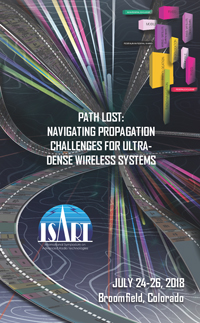Institute for Telecommunication Sciences
Visit ITS's Main Website.
The Institute for Telecommunication Sciences (ITS), located in Boulder, Colorado, is the research and engineering arm of NTIA. ITS provides core telecommunications research and engineering services to promote:
- Enhanced domestic competition and new technology deployment
- Advanced telecommunications and information services
- More efficient use of the radio frequency spectrum
ITS also serves as a principal Federal resource for investigating the telecommunications challenges of other Federal agencies, state and local governments, private corporations and associations, and international organizations. In particular, this includes assisting Federal public safety agencies, the FCC, and agencies that use Federal spectrum. Current areas of focus include:
- Research, development, testing, and evaluation to foster nationwide first-responder communications interoperability
- Test and Demonstration Networks to facilitate accelerated development of standards for emerging communications devices
- Analysis and resolution of interference issues
ITS Director: David Goldstein
David's email
Contact
Institute for Telecommunication Sciences
325 Broadway, MC ITS.D
Boulder, CO 80305–3337
(303) 497–3571
ITSInfo
Related content
Remarks of Assistant Secretary Redl at the Media Institute Communications Forum Luncheon
Remarks of David J. Redl
Assistant Secretary of Commerce for Communications and Information
Media Institute Communications Forum Luncheon
Washington, D.C.
May 17, 2018
--As Prepared for Delivery--
“Protecting and Expanding the Free and Open Internet”
Thank you to Rick Kaplar, Dick Wiley and the Media Institute for inviting me to speak today.
ISART 2018 to Examine Propagation Challenges with Ultra-Dense Wireless Systems

Registration is now open for the 17th International Symposium on Advanced Radio Technologies (ISART), which will take place July 24 to 26, 2018, in Broomfield, Colorado. David Redl, Assistant Secretary for Communications and Information and NTIA Administrator, will deliver the opening keynote address. NTIA’s Institute for Telecommunication Sciences (ITS) and NIST’s Communications Technology Laboratory are co-sponsoring the event.
This year’s symposium – Path Lost: Navigating Propagation Challenges for Ultra-Dense Wireless Systems – will explore the current state of the art in radio propagation prediction and map the path forward to the next generation of foundational propagation models. Leading experts from government, academia and industry will explore the technical, economic, and regulatory impacts of network densification in response to the explosion in demand for wireless data.
Making the Case for Using Computer Simulations to Gauge Spectrum Interference
As demand for spectrum for commercial use continues to grow, policymakers are exploring spectrum sharing as a way to expand capacity while still fulfilling the needs of federal agencies. This model can work only if rules are designed to maximize the value of spectrum resources without compromising the quality and reliability of telecommunications.
To minimize the probability of interference, spectrum managers separate systems in distance and frequency. The amount of separation is determined by interference protection criteria (IPC), which can be estimated through analysis, measurement, or computer simulation.
Although the analytic method is fast it can also be highly inaccurate. Accurate and repeatable measurements may also be difficult to obtain. One reason is that IPC measurements are often hindered by restrictions on equipment availability. In some cases, spectrum managers need estimates for systems that have not been built yet, so measurements are not possible. In other cases, the systems can only be tested for a brief period of time to avoid service interruptions.
To overcome the limitations of measurement, NTIA’s Office of Spectrum Management and Institute for Telecommunication Sciences (ITS) have made significant investments in computer simulation capabilities. This has provided a tool to use when measurements are not possible, especially when trying to assess a multitude of spectrum sharing scenarios. ITS is NTIA’s spectrum engineering laboratory.
